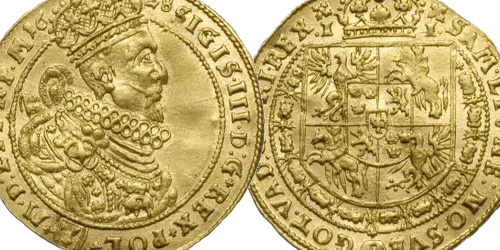A rare medal commemorating the founding of the Artillery Academy in Dresden in 1767, an important training institution of the Saxon army.
The medal was created by the renowned Dresden medallist Johann Friedrich Stieler and represents the high artistic level of Saxon medallic art in the second half of the 18th century.
The specimen features a prooflike mirror surface with light rubs in the fields, yet retaining an attractive and fresh appearance.
A medal of great military significance and of fine artistic execution. An interesting offer for collectors of Saxon medallic art and the Wettin era.
Obverse: Bust of the prince facing right, in cuirass with sash and the Order of the White Eagle; below, the signature STIELER F.
Legend: XAVIERVS D G REG PR POL & L DVX SAX EL ADM (Xavier, by the Grace of God Regent of the Kingdom of Poland and Lithuania, Duke of Saxony, Elector and Admiral).
Reverse: Mars showing a young soldier artillery equipment; in the exergue: ACAD ARTILL FVND DRESD / M DCC LXVII; around, the motto VERÆ FORTITVDINIS ALIMENTA & FVLCRA (“The nourishment and support of true courage”).
Diameter: 46 mm
Weight: 43.46 g
The Artillery Academy in Dresden was established in 1767 at the initiative of Elector Frederick Christian of Saxony and his brother, Prince Xavier of Wettin, who at the time served as administrator of the Electorate of Saxony. Its foundation was a response to the need to modernize the Saxon army after the Seven Years’ War (1756–1763), in which Saxony suffered heavy losses and lost much of its military importance.
The institution functioned as a modern military school, training artillery officers and military engineers. Its curriculum covered not only the handling of artillery but also mathematics, fortification engineering, mechanics, and the sciences. In this way, the Artillery Academy became one of the key centers of military education in Central Europe in the second half of the 18th century.
The founding of the academy symbolized the restoration of Saxony’s military strength and its attempt to regain political importance in the Empire and in Europe after the defeats suffered during the Seven Years’ War.









